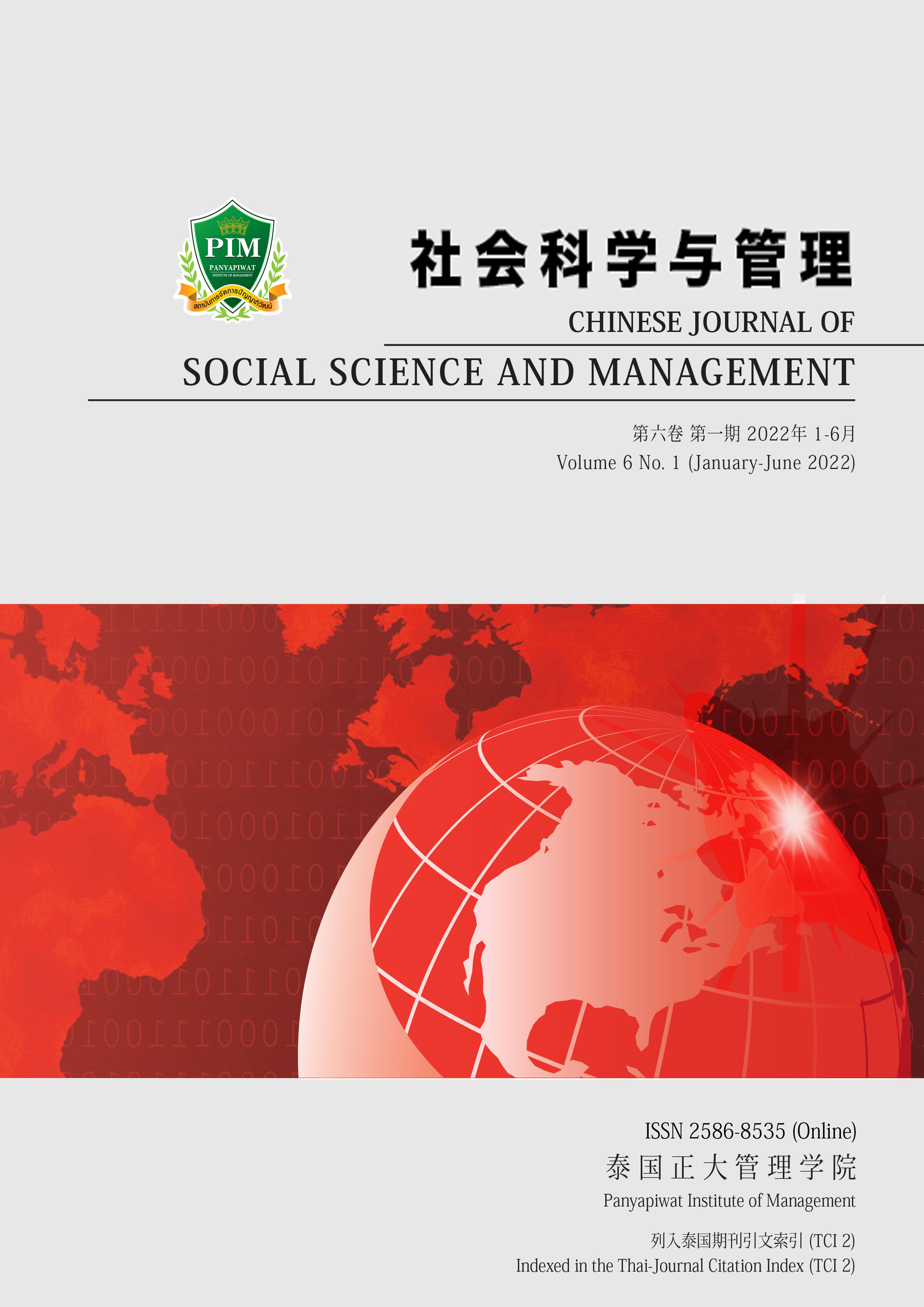THE IMPACT OF INTERACTION-ORIENTED STRATEGY ON CORPORATEPERFORMANCE: THE MEDIATING ROLE OF THE GRADUAL INNOVATION AND THE MODERATING ROLE OF TECHNOLOGICAL FLUCTUATIONS
Main Article Content
Abstract
Interactive-oriented strategy has become an important choice for companies to gain long-term competitive advantages. This study selected 224 sample data from the two provinces of Guangdong and Shandong to conduct an empirical test on the relationship between interaction orientation, technological fluctuations, incremental innovations, and customer-based profitability. The results
showed that: interaction orientation had a significant positive impact on customer-based profitability and gradual innovation. Gradual innovation had a significant positive impact on customer -based profitability; moreover, gradual innovation played the part of an intermediary role between interaction orientation and the profit performance of the customer base. However, technology played a regulating role between interactive orientation and gradual innovation.
Article Details

This work is licensed under a Creative Commons Attribution-NonCommercial-NoDerivatives 4.0 International License.
Chinese Journal of Social Science and Management Editorial Division
The Office of Research and Development, Panyapiwat Institute of Management
85/1 Moo 2, Chaengwattana Rd., Bang Talat, Pakkred, Nonthaburi 11120, Thailand
Tel. 02 855 01048 E-mail: cjssm@pim.ac.th
References
Ghemawat, P., & Ricart, C. J. E. I. (2018). The organizational tension between static and dynamic efficiency. Strategic Management Journal, 14(S2), 59-73.
He, H. W., Xu, X., & Xu, H. (2019). The impact mechanism of interaction orientation on service innovation performance: An empirical study based on B2B services. Commercial Research, (2), 1-9. [in Chinese]
Jansen, J. J. P., Van Den Bosch, F. A. J., & Volberda, H. W. (2006). Exploratory innovation, exploitative innovation, and performance: Effects of organizational antecedents and environmental moderators. Management Science, 52(11), 1661-1674.
Jaworski, B., Kohli, A. K., & Sahay, A. (2000). Market-driven versus driving markets. Journal of the Academy of Marketing Science, 28(1), 45-54.
Liu, T. T., Zhang, J. W., & Pei, X. T. (2019). The impact mechanism of the interaction orientation transforming into the new venture performance: Based on entrepreneurial learning. Science & Technology Progress and Policy, 36(2), 102-109. [in Chinese]
Ramani, G., & Kumar, V. (2008). Interaction orientation and firm performance. Journal of Marketing, 72(1), 27-45.
Shen, J. Q. (2017). Research on the relationship among interaction orientation, value proposition change and new venture performance [Master’s thesis]. Yanshan University. [in Chinese]
Xu, B. Y., & Zhan, J. (2018). Co-creation of value based on interactive orientation-a case study of muji and strict selection. Market Modernization, (19), 1-3. [in Chinese]
Zhang, W. Q. (2018). An empirical research on influences of interaction orientation on service innovation performance in internet enterprise [Master’s thesis]. Hunan University. [in Chinese]
Zhang, W., Guo, L. H., Zhang, W. K., & Hao, M. M. (2017). Research on the impact of incremental and radical format innovation on financial performance and competitive advantage. Science & Technology Progress and Policy, 34(24), 25-32. [in Chinese]


